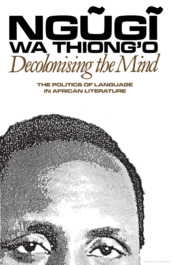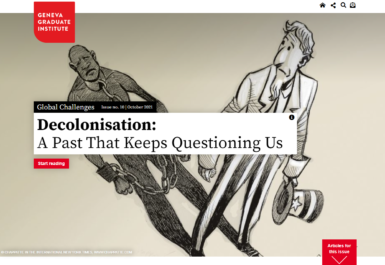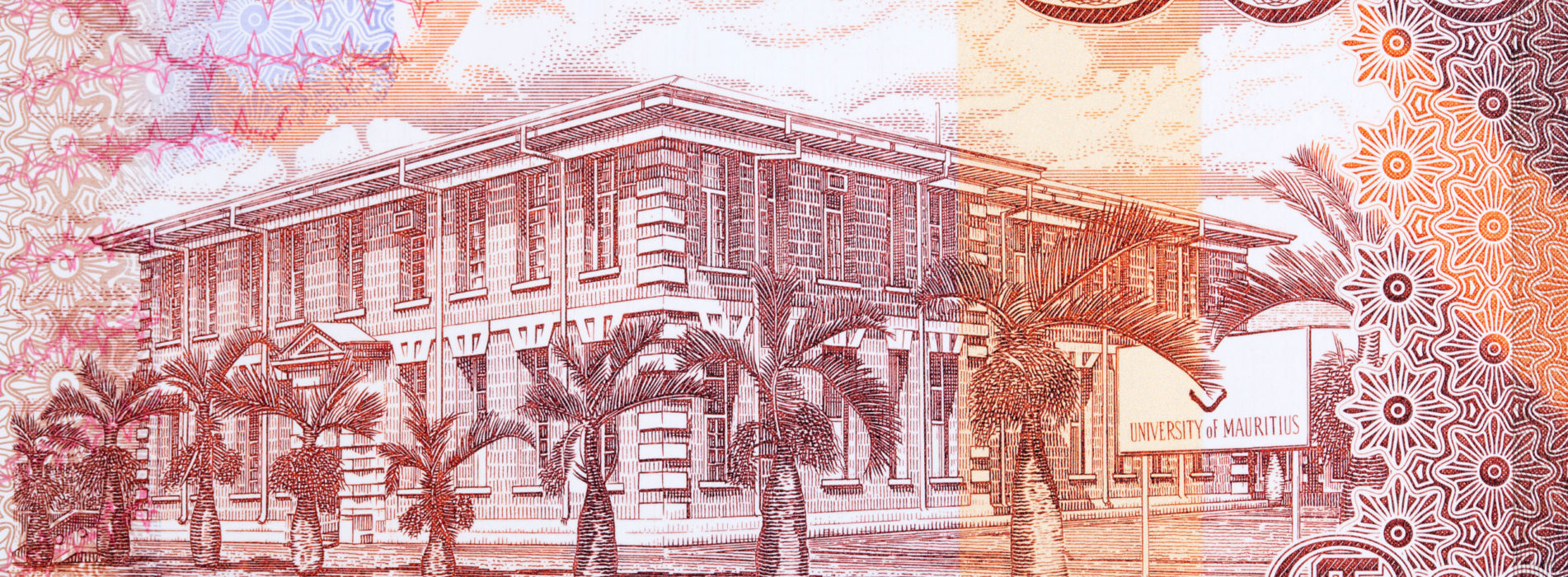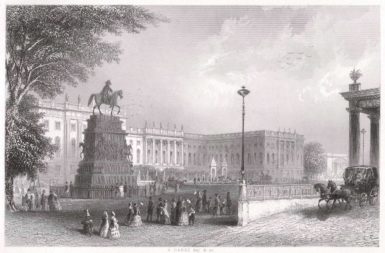Higher Education, Decolonisation and the Global South
There are several elements to the decolonisation of higher education, from reviewing the curriculum to recognising other ways of knowing, such as indigenous knowledge. In all cases, however, collaboration among multiple stakeholders is essential, seeking input not only from professors, students and university administrators, but also, for example, from indigenous leaders and members of the public.
Over the past two decades, global gross enrolment rates have doubled in higher education, a trend that also holds true for the Global South. However, the state of higher education in this part of the world is marked by a complex mix of successes and challenges. While numerous obstacles persist, there is one crucial aspect that demands special attention: the decolonisation of higher education.
Primarily, the landscape of higher education exhibits significant variations among different regions within the Global South. Notably, East Asia and the Pacific, as well as Latin America and the Caribbean, have undergone remarkable shifts, evidenced by enhanced accessibility and improved financing mechanisms in higher education. In contrast, South and West Asia, along with sub-Saharan Africa, portray a less optimistic scenario.
Traditionally, in the literature that examines higher education in the Global South, several core challenges have been pinpointed, ranging from digital transformation and accessibility (inclusive of gender parity) to affordability, curriculum development, international collaboration, research and innovation, quality assurance, inclusivity, financing and infrastructures. Beyond these fundamental concerns, various contextual factors can profoundly shape the higher education landscape; they include political stability, fragility, migration dynamics, and the degree of access to labour markets for higher education graduates.
Simultaneously, in the past two decades discussions have emerged regarding the decolonisation of concepts like “development” or “knowledge”, and of education systems on a broader scale.

These debates are not entirely new, they draw upon earlier works such as Ngũgĩ wa Thiong’o’s Decolonising the Mind (1986), which challenged the dominance of colonial languages within cultural frameworks. More recently, authors such as Boaventura de Sousa Santos in Epistemologies of the South: Justice against Epistemicide (2014) have discussed the significance of embracing diverse knowledge systems. Researchers discussing decolonisation in education actively confront the prevailing dominance of Western epistemologies and underline the need of cultivating a global knowledge landscape that is not only more equitable but also more inclusive.
The discourse on the decolonisation of higher education is certainly multifaceted and encompasses a whole range of perspectives. The contours of this discussion have been shaped by diverse approaches, but all have spotlighted the significance of decolonial strategies in fostering epistemological diversity. Reimagining higher education in the Global South requires rethinking the essential pillars of how higher education institutions operate and how they are designed. Among these pillars, the decolonisation of the curriculum deserves priority consideration. All approaches have spotlighted the significance of decolonial strategies in fostering epistemological diversity. It involves revaluating existing course materials and content to ensure that they represent a wide range of perspectives and knowledge systems. In doing so, decolonisation also challenges the historical dominance of Western knowledge systems in academia by recognising and valuing other ways of knowing, such as indigenous and local knowledge. This involves acknowledging that different cultures have unique ways of understanding the world and that these ways should be incorporated into education systems.

Traditional pedagogies and research methodologies constitute another important area to be decolonised. They may not be appropriate when working with indigenous or marginalised social groups. Decolonised research involves collaborating with the communities studied, using participatory research methods and ensuring that research outcomes benefit the communities. These more interactive and participatory methodologies reflect diverse knowledge constructions. They also prompt a critical examination of fundamental values in education – and particularly in higher education – such as “meritocracy and competitiveness”, which must be revaluated not as abstract ideals or myths, but as values intricately tied to culture and context.
To ensure that the process is inclusive and representative, decolonisation efforts also involve open dialogue and collaboration with various stakeholders: students, faculty, indigenous leaders, community members and marginalised groups, as well as other higher education institutions in the South (South-South cooperation) for an increased diversity of knowledge production. As colonialism has caused trauma and cultural loss, reimagining higher education in the Global South should also be seen as a source of reconciliation and healing, both within educational institutions and beyond.
However, in a global landscape where knowledge production systems are interdependent but often built upon asymmetric relations between higher education institutions, narrowing the focus solely on the Global South would simply neglect the other side of the story, the Western world. Thus, the decolonisation of higher education also requires a thorough re-examination of the Western higher education institutions’ modus operandi.
TABLE: Roles and Missions of the University
| Regime | Role and missions |
|---|---|
| Medieval University | Serving God and Church; Serving Science |
| Westphalian University | Serving Science; Serving State and Nation |
| Postmodern University | Serving Society and Humanity; Serving the Market |
Source: Marie-Laure Salles-Djelic, “Scholars in the Audit Society: Understanding our Contemporary Iron Cage”, in Scholars in Action: Past – Present – Future, ed. Lars Engwall (Uppsala Universitet, 2012), p. 99.
DEFINITIONS: Selection of Terms Related to Higher Education
A university (from Latin universitas “a whole”) is an institution of higher (or tertiary) education and research which awards academic degrees in several academic disciplines. Universities typically offer both undergraduate and postgraduate programmes. The word university is derived from the Latin phrase universitas magistrorum et scholarium, which roughly means “community of teachers and scholars”. (Wikipedia)
Higher education, also called post-secondary education, third-level or tertiary education, is an optional final stage of formal learning that occurs after completion of secondary education. This consists of universities, colleges and polytechnics that offer formal degrees beyond high school or secondary school education. The right of access to higher education is mentioned in a number of international human rights instruments. The UN International Covenant on Economic, Social and Cultural Rights of 1966 declares, in Article 13, that “higher education shall be made equally accessible to all, on the basis of capacity, by every appropriate means, and in particular by the progressive introduction of free education”. (Wikipedia)
A college (Latin collegium) is an educational institution or a constituent part of one. In most of the world, a college may be a high school or secondary school, a college of further education, a training institution that awards trade qualifications, a higher-education provider that does not have university status (often without its own degree-awarding powers), or a constituent part of a university. The word is generally also used as a synonym for a university in the US. (Wikipedia)
Apprenticeship is a system for training a new generation of practitioners of a trade or profession with on-the-job training and often some accompanying study (classroom work and reading). Apprenticeships can also enable practitioners to gain a license to practice in a regulated occupation. Most of their training is done while working for an employer who helps the apprentices learn their trade or profession, in exchange for their continued labor for an agreed period after they have achieved measurable competencies. (Wikipedia)
An information society is a society where the usage, creation, distribution, manipulation and integration of information is a significant activity. Its main drivers are information and communication technologies, which have resulted in rapid growth of a variety of forms of information. Proponents of this theory posit that these technologies are impacting most important forms of social organisation, including education, economy, health, government, warfare, and levels of democracy. (Wikipedia)
A knowledge society generates, shares and makes available to all members of the society knowledge that may be used to improve the human condition. A knowledge society differs from an information society in that the former serves to transform information into resources that allow society to take effective action, while the latter only creates and disseminates the raw data. The capacity to gather and analyse information has existed throughout human history. However, the idea of the present-day knowledge society is based on the vast increase in data creation and information dissemination that results from the innovation of information technologies. (Wikipedia)
Wikipedia
TABLE: The Top 12 Host Countries of International Students in 2022 (by number of students)
| USA | 948'519 |
| UK | 633'910 |
| Canada | 552'580 |
| France | 364'756 |
| Australia | 363'859 |
| Russia | 351'127 |
| Germany | 324'729 |
| China | 296'611 |
| Japan | 201'877 |
| Italy | 125'470 |
| Netherlands | 115'068 |
| Argentina | 108'180 |
Source: Project Atlas.
GRAPH: The Twelve Countries with the Most Universities in 2023
BOX: The Humboldtian Model of Higher Education
The Humboldtian model of higher education or Humboldt’s Ideal is a concept of academic education that emerged in the early 19th century and whose core idea is a holistic combination of research and studies. It integrates the arts and sciences with research to achieve both comprehensive general learning and cultural knowledge. Several elements of the Humboldtian model heavily influenced and subsequently became part of the concept of the research university. The Humboldtian model goes back to Wilhelm von Humboldt, a Prussian philosopher, government functionary and diplomat who, in the time of the Prussian reforms, relied on a growing, educated middle class to promote his claims about general education.
As a privy councillor in the Interior Ministry, he reformed the Prussian education system according to humanist principles. He founded the University of Berlin, appointing distinguished scholars to both teach and conduct research there. Several scholars have labeled him the most influential education official in German history. Humboldt sought to create an educational system based on unbiased knowledge and analysis, combining research and teaching while allowing students to choose their own course of study. The University of Berlin was later named the Humboldt University of Berlin, after him and his brother, the naturalist Alexander von Humboldt. His educational model went beyond vocational training in Germany.
In a letter to the Prussian king, he wrote: “There are undeniably certain kinds of knowledge that must be of a general nature and, more importantly, a certain cultivation of the mind and character that nobody can afford to be without. People obviously cannot be good craftworkers, merchants, soldiers or businessmen unless, regardless of their occupation, they are good, upstanding and – according to their condition – well-informed human beings and citizens. If this basis is laid through schooling, vocational skills are easily acquired later on, and a person is always free to move from one occupation to another, as so often happens in life.”
The philosopher and former State Minister for Culture of the Federal Republic of Germany, Julian Nida-Rümelin, has criticised discrepancies between Humboldt’s ideals and the contemporary European education policy, which narrowly understands education as preparation for the labor market, arguing instead that one needs to decide between McKinsey’s and Humboldt’s ideals.
Wikipedia

